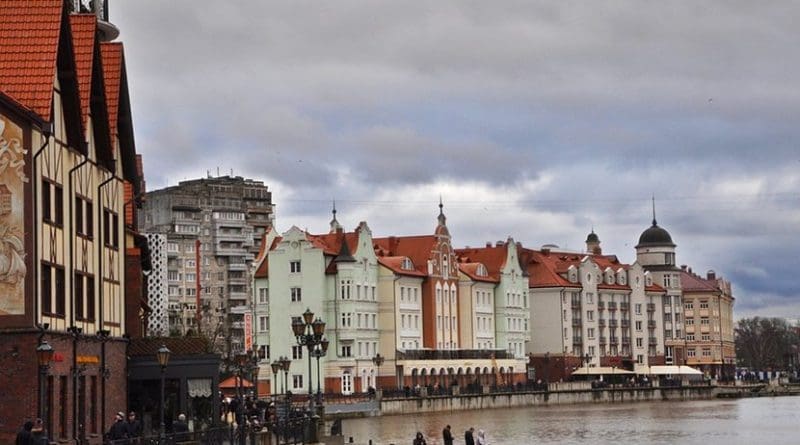Moscow Has Transformed Kaliningrad From A Pioneering Euro-Region To An Anti-European Bastion – OpEd
By Paul Goble
Just as Moscow transformed Chechnya from an independence-seeking republic in the 1990s to “an imperial bastion” in the Caucasus, the Russian government of Vladimir Putin has changed Kaliningrad over the same period from a pioneering Euro-Region into an anti-European outpost on the Baltic, Vadim Shtepa says.
In an essay for Tallinn’s International Centre for Defence and Security, the editor of the AfterEmpire portal says that the Kaliningrad exclave is special because far more of its residents have visited Poland and Lithuania than “big” Russia and 70 percent have Shengen visas while most Russians don’t even have foreign passports (icds.ee/ru/kak-pilotnyj-region-evrointegracii/; also at afterempire.info/2018/08/27/kenigsberg/).
Since Vladimir Putin came to power, Shtepa continues, its “pro-European regional consciousness was suppressed or more precisely transformed into its opposite” in much the same way that the population of Chechnya was transformed over the same period. Three aspects of this are especially noteworthy, he says.
First of all, Moscow went after the flourishing Kaliningrad regionalism of the 1990s, epitomized by the emergence of the Baltic Republic Party which sought republic status for the oblast and the formation of a Euro-Region on its territory. But in 2003, Moscow disbanded the party because it violated a 2001 Putin law and refused to form a Euro-Region.
This development was compounded, Shtepa says, by Putin’s power as of 2004 to appoint all governors, something that undermined the electoral power of the regionalists and led to the closing down of all pro-European projects in Kaliningrad and the integration of the oblast into the Kremlin leader’s “’power vertical.’”
Despite the continuing influence of regionalist and European ideas in Kaliningrad especially among the young, the regionalist writer continues, Moscow was able not only to block their realization but after 2014 with the deterioration of relations with the West promote “the sharp growth of militarist attitudes” in the exclave.
Kaliningrad “again as in Soviet times began to be considered purely as a military advance post” rather than as some kind of bridge between Russia and Europe. The increasing militarization led to an outburst of “spy mania,” Shtepa says; and that led to a closing down of European offices in the exclave and the arrests of local activists who cooperated with them.
Second, Moscow transformed the Kaliningrad State University into the Baltic Federal University, outrageously inappropriately taking the name Kant from the region’s German past, something “typical for imperial technologies,” the commentator says. Absurdly, it now appears that Kant “lived in Kaliningrad,” not in Koenigberg.
If KSU had been a hotbed of regionalist thought, the BFU became a place where any deviation was suppressed and where the goal of those in charge was to produce “specialists in the information struggle,” according to the institution’s website. And it was out of this factory, Shtepa says, that the third arrow at the heart of Kaliningrad came.
This was the portal Rubaltic.ru, a website that represents “a bold indication that the present-day Kaliningrad is not only a rocket but an information-propaganda base directed against Europe” in general and the Baltic countries in particular, the Russian regionalist says. To date, its activities have been relatively ineffective.
But if that remains the case, the activities of Rubaltic.ru “clearly demonstrates the hostile attitude of the Kremlin toward neighboring countries which have been able to achieve independence from it” and its commitment to keep Kaliningrad as a bastion of hostility to them and to the West more generally.

